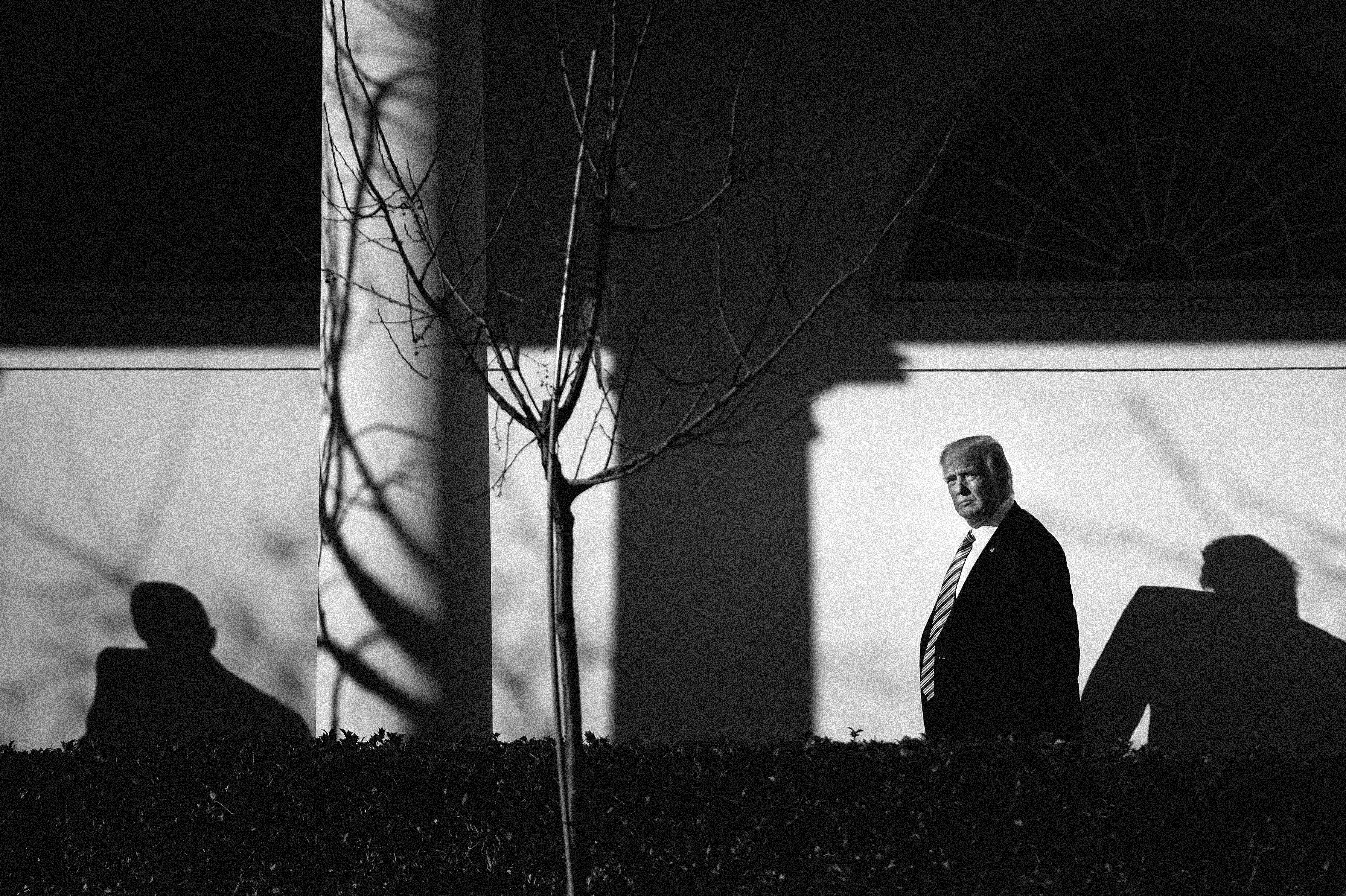Consciousness of guilt
Why has President Trump spent two years trying to halt, control, and discredit the Russia investigation?


A free daily email with the biggest news stories of the day – and the best features from TheWeek.com
You are now subscribed
Your newsletter sign-up was successful
This is the editor's letter in the current issue of The Week magazine.
Before he was muzzled for excessive candor a few weeks ago, Rudy Giuliani made a startling concession. "I never said there was no collusion between the campaign" and Russia, President Trump's lawyer said. He was only saying that Trump himself hadn't colluded with Russia. The reasons for this tactical retreat have become obvious. Last week, a federal judge ruled that former Trump campaign chairman Paul Manafort had repeatedly lied to prosecutors about his contacts with a Russian agent, Konstantin Kilimnik. As campaign chairman, Manafort gave Kilimnik "very detailed" polling data and discussed a "peace plan" for Ukraine favorable to Vladimir Putin. Special counsel Robert Mueller's team also revealed last week that it had proof that Trump adviser Roger Stone had direct contact with Russian hackers who stole Democratic emails and with WikiLeaks, which later published them. During this time, Stone admits, he frequently spoke to his pal Trump.
During trials, prosecutors often cite a legal concept called "consciousness of guilt." When a defendant repeatedly lies about his behavior or orchestrates a cover-up, it suggests he knows he committed crimes. Soon after he took office, Trump took extraordinary steps to halt the investigation into Russia's attack on the election, and celebrated his firing of FBI Director Jim Comey with Russia's grinning ambassador in the Oval Office, saying "great pressure" had been "taken off." Trump's obstruction was so flagrant, former FBI acting director Andrew McCabe reveals in a new book, it led top FBI and Justice Department officials to wonder if the president was "a Russian asset." Over the past two years, Trump has publicly attacked the Russia investigation more than 1,100 times. He has berated a succession of underlings for failing to protect him from Mueller and other investigations. What does this indicate about what Trump thinks about his innocence or guilt?
The Week
Escape your echo chamber. Get the facts behind the news, plus analysis from multiple perspectives.

Sign up for The Week's Free Newsletters
From our morning news briefing to a weekly Good News Newsletter, get the best of The Week delivered directly to your inbox.
From our morning news briefing to a weekly Good News Newsletter, get the best of The Week delivered directly to your inbox.
A free daily email with the biggest news stories of the day – and the best features from TheWeek.com
William Falk is editor-in-chief of The Week, and has held that role since the magazine's first issue in 2001. He has previously been a reporter, columnist, and editor at the Gannett Westchester Newspapers and at Newsday, where he was part of two reporting teams that won Pulitzer Prizes.
-
 Quentin Deranque: a student’s death energizes the French far right
Quentin Deranque: a student’s death energizes the French far rightIN THE SPOTLIGHT Reactions to the violent killing of an ultra-conservative activist offer a glimpse at the culture wars roiling France ahead of next year’s elections.
-
 Secured vs. unsecured loans: how do they differ and which is better?
Secured vs. unsecured loans: how do they differ and which is better?the explainer They are distinguished by the level of risk and the inclusion of collateral
-
 ‘States that set ambitious climate targets are already feeling the tension’
‘States that set ambitious climate targets are already feeling the tension’Instant Opinion Opinion, comment and editorials of the day
-
 Epstein files topple law CEO, roil UK government
Epstein files topple law CEO, roil UK governmentSpeed Read Peter Mandelson, Britain’s former ambassador to the US, is caught up in the scandal
-
 Iran and US prepare to meet after skirmishes
Iran and US prepare to meet after skirmishesSpeed Read The incident comes amid heightened tensions in the Middle East
-
 Israel retrieves final hostage’s body from Gaza
Israel retrieves final hostage’s body from GazaSpeed Read The 24-year-old police officer was killed during the initial Hamas attack
-
 China’s Xi targets top general in growing purge
China’s Xi targets top general in growing purgeSpeed Read Zhang Youxia is being investigated over ‘grave violations’ of the law
-
 Panama and Canada are negotiating over a crucial copper mine
Panama and Canada are negotiating over a crucial copper mineIn the Spotlight Panama is set to make a final decision on the mine this summer
-
 Why Greenland’s natural resources are nearly impossible to mine
Why Greenland’s natural resources are nearly impossible to mineThe Explainer The country’s natural landscape makes the task extremely difficult
-
 Iran cuts internet as protests escalate
Iran cuts internet as protests escalateSpeed Reada Government buildings across the country have been set on fire
-
 US nabs ‘shadow’ tanker claimed by Russia
US nabs ‘shadow’ tanker claimed by RussiaSpeed Read The ship was one of two vessels seized by the US military
